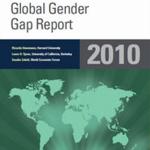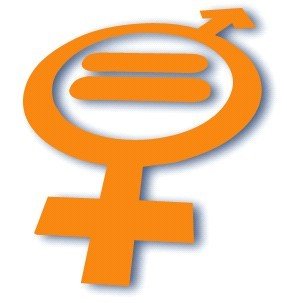Turkey far behind for Closing the Gender Gap

"Turkey (122) occupies the last place in the regional rankings. The country performs above average in the political empowerment of women- primarily women in parliament-and in the educational attainment category, but lags behind in the other two sub-indexes. Turkey ranks among the 10 worst performers in the economic participation and opportunity subindex", the Global Gender Gap Index 2011 published by the World Economic Forum revealed.
The report, issued for the sixth time, scrutinized the situation in 135 countries. Turkey ranks on the 122nd position, leaving only 14 countries further behind.
Northern European countries like Iceland, Norway, Finland and Sweden take the international lead. The research is based on the four pillars of economic participation and opportunity, educational attainment, health and survival and political empowerment. Mali, Pakistan, Chad and Yemen are making up the rear of the list.
"Overall, 85% of countries make progress between 2006 and 2011 while 15% either deteriorate or remain unchanged".
The situation in Africa and particularly in South America is deteriorating in international comparison. Countries like New Zealand, South Africa, Spain and Sri Lanka moved down in the ranking while countries like Brazil, Ethiopia, Qatar, Tanzania and Turkey improved. Turkey moved up four places from 126th to 122nd position in comparison to last year.
In terms of economic participation and economy Turkey is positioned at the very rear on place 132. The country's performance in educational attainment landed Turkey on 106th position. Regarding health and survival Turkey is on 62nd position and on the 89th rank considering political empowerment.
North America is taking the lead in terms of regional performance on the global gender gap index. Europe and Central Asia come second, followed by Latin America and the Caribbean, Asia and the Pacific, Sub-Saharan Africa and Middle East and North Africa at the end.
"The most important determinant of a country's competitiveness is its human talent-the skills, education and productivity of its workforce-and women account for one-half of the potential talent base throughout the world. Closing gender gaps is thus a matter of human rights and equity; it is also one of efficiency. (...) Over time, therefore, a nation's competitiveness depends, among other things, on whether and how it educates and utilizes its female talent", the report claims.
"Thirty-eight countries have closed the gap in health and survival (...).On health and survival, however, there has been a small deterioration between 2006 and 2011, from 97% to 96%". Almost 93% percent of the economic participation gap has been closed. "Eight countries have closed the gap in both the health and education subindexes. No country has closed the economic participation gap or the political empowerment gap", the report indicated. (IK/ÇT/VK)






